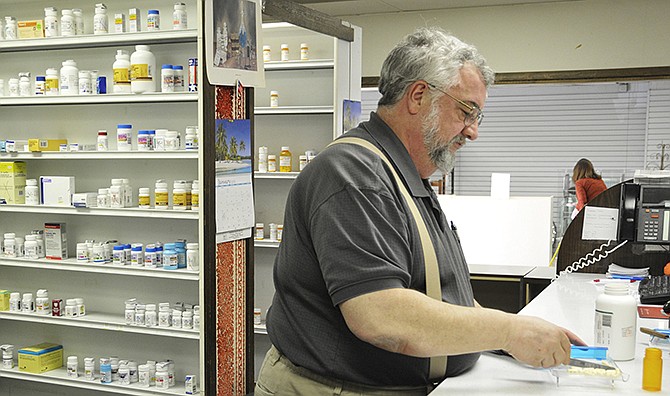Because of the state's lack of a prescription drug monitoring system, state Rep. Kevin Engler says Missouri is becoming the doctor-shopping capital of the nation.
He presented a prescription drug monitoring bill to the House General Laws committee Tuesday in an attempt to put Missouri in line with the other 49 states that have already adopted a monitoring system.
"This is nothing new," said Engler, R-Farmington. "Unfortunately, I've carried (this bill) for 5 years. It's embarrassing that Missouri is the only state."
The bill creates the Prescription Drug Monitoring Program Act and requires the Department of Health and Senior Services to monitor the prescribing and dispensing of controlled substances, such as Oxycontin.
Prescription information would be electronically sent to the department and the information would be put into a database accessible to pharmacists and physicians.
Engler said the goal of the bill is keep people from abusing Missouri's prescription drug system by seeking prescriptions from multiple physicians.
He said an abuser usually receives his first prescription for a controlled substance through Medicaid, and can sell one pill for a price 10-20 times more than the prescription price.
"They've already sold that first batch that we paid for, and it allows them to pay for the rest," Engler said.
He said it's estimated that a dozen people die every year in Missouri because of prescription drugs being bought, sold and taken to the point of overdose.
"Our doctors are working trying to treat people," Engler said. "They don't have time to come up here (the Capitol) every year and ask why we aren't getting this done."
He said it's been proven with the implementation of a system in other states that it doesn't cost the state anything.
It's paid for by grants through federal agencies, and by insurance and drug companies.
Christian Tadrus, president of the Missouri Pharmacy Association, said a monitoring system would aid pharmacists in making the decision whether someone is seeking medication for relief from pain or for alternative reasons.
"The idea of having more information available for pharmacists is key," he said. "Where it makes most sense for Missouri is when we're on the border of another state that has this and Missouri doesn't. If someone is being monitored for (prescription drug) behavior in one state, they aren't in Missouri. They get away with it."
Other proponents of the bill argued that a system would alert physicians of what medications patients are currently taking so that a new medication doesn't counteract with existing or previous ones.
Mitch Hubbard, a resident of Callaway County, believes the proposed bill violates the 4th Amendment.
"There's no probable cause in this bill," he said. "There's nothing more secure than your right to medical privacy. If they know what prescription you're getting, they can probably deduce what condition you have and that violates your privacy."

